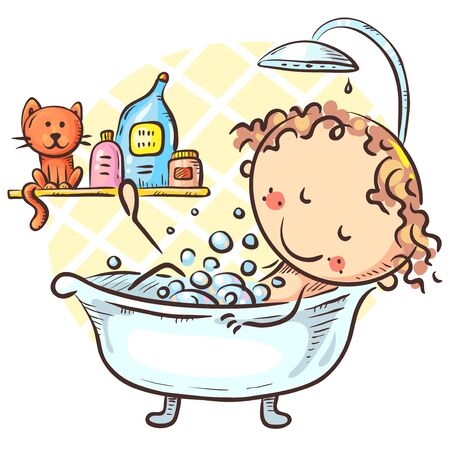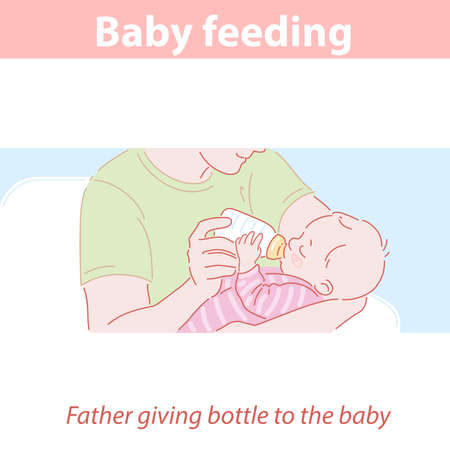Understanding Hydration and Its Role in Pregnancy
Proper hydration is a cornerstone of a healthy pregnancy, yet it’s often overlooked amid all the advice moms-to-be receive. When you’re pregnant, your body goes through remarkable changes that increase your need for water. Not only do you require more fluids to support the increased blood volume and amniotic fluid, but staying hydrated also helps transport essential nutrients to your growing baby. Good hydration supports digestion, helps prevent constipation—a common pregnancy complaint—and aids in regulating body temperature, which can be especially important as hormonal shifts make you more prone to feeling overheated. For your developing baby, water is vital for cell growth and overall development. Dehydration during pregnancy can lead to complications such as headaches, swelling, preterm labor, or even birth defects in severe cases. Simply put, making hydration a daily priority plays a direct role in safeguarding both maternal and fetal health throughout every stage of pregnancy.
2. How Much Water Pregnant Women Really Need
Staying well-hydrated during pregnancy is more than just a recommendation—it’s an essential part of supporting your health and your baby’s development. But how much water do you really need? In the United States, experts like the National Academies of Sciences, Engineering, and Medicine suggest that pregnant women should aim for about 10 cups (80 ounces) of fluids daily. However, individual needs can vary based on several factors, including climate and physical activity.
Evidence-Based Daily Water Intake Recommendations
The following table outlines the general guidelines for water intake during pregnancy in the U.S., taking into account different lifestyle and environmental considerations:
| Condition | Recommended Daily Fluid Intake |
|---|---|
| Average Pregnancy (Mild Activity, Moderate Climate) | ~80 oz (10 cups) |
| Hot/Humid Climate or Increased Physical Activity | 90–100 oz (11–12.5 cups) |
| Multiple Pregnancies (e.g., twins) | Consult OB/GYN for personalized advice |
Why These Numbers Matter
Your body uses more water during pregnancy to support increased blood volume, amniotic fluid production, and your baby’s developing organs. Living in hotter states like Texas or Florida—or being active in any state—means you’ll lose more fluids through sweat, so you may need even more than the general recommendation.
Practical Tips for Meeting Your Hydration Goals
If plain water isn’t your favorite, flavored waters, herbal teas (caffeine-free), and eating water-rich foods like fruits and vegetables all count toward your daily total. Carrying a refillable water bottle with ounce markers can help you track your intake throughout the day.

3. Signs of Dehydration: What to Watch For
Staying hydrated is crucial during pregnancy, but how do you know if you’re not getting enough fluids? Recognizing the signs of dehydration can help protect both you and your baby’s health. Some of the most common symptoms include feeling unusually thirsty, having a dry mouth or lips, producing dark yellow urine, and experiencing less frequent urination. You might also notice headaches, dizziness, fatigue, or even muscle cramps. For pregnant women, dehydration can sometimes cause overheating or trigger Braxton Hicks contractions—those “practice” contractions that can feel like real labor. If left untreated, dehydration may increase the risk of complications such as urinary tract infections, low amniotic fluid levels, or even preterm labor. That’s why it’s so important to tune into your body and take these warning signs seriously. If you’re ever unsure whether you’re drinking enough water, pay close attention to how you feel throughout the day and don’t hesitate to reach out to your healthcare provider for guidance.
4. Simple Tips for Staying Hydrated
Staying hydrated during pregnancy doesn’t have to be complicated, even with a busy American lifestyle. Here are some simple and effective strategies to help you meet your daily water needs without hassle:
Carry a Reusable Water Bottle
One of the easiest ways to remember to drink water is by keeping a reusable water bottle with you throughout the day. Whether you’re at work, running errands, or spending time at home, having water within reach makes it more likely you’ll sip regularly.
Make Water Part of Your Routine
Link drinking water to habits you already have, like having a glass after brushing your teeth or before every meal. Setting reminders on your phone or using hydration tracking apps can also help keep you on track.
Add Flavor Without Extra Calories
If plain water isn’t appealing, try infusing it with fresh fruits like lemon, berries, or cucumber. Herbal teas served cold or hot (caffeine-free options) are another way to boost fluid intake without added sugars common in sodas or sweetened beverages.
Eat Water-Rich Foods
You can also increase hydration through your diet. Many fruits and vegetables naturally contain high amounts of water, contributing to your daily fluid needs:
| Food | Approximate Water Content (%) |
|---|---|
| Watermelon | 92% |
| Cucumbers | 95% |
| Lettuce | 96% |
| Oranges | 86% |
| Strawberries | 91% |
Set Realistic Daily Goals
Aim for gradual progress rather than perfection. For example, if you currently drink two cups of water a day, add an extra cup this week and gradually increase from there. Listen to your body’s cues—thirst is a natural reminder!
Stay Mindful During Activity and Hot Weather
If you exercise, spend time outdoors, or live in a warmer state like California or Texas, remember that you may need even more fluids to stay hydrated. Bring water along for workouts and take frequent sips rather than waiting until you feel thirsty.
5. Common Myths and FAQs About Pregnancy Hydration
When it comes to hydration during pregnancy, there’s no shortage of advice—and confusion—out there. Let’s clear up some common myths and answer frequently asked questions that many American moms have.
Myth 1: You Need to Drink a Gallon of Water a Day
While water needs increase during pregnancy, you don’t need to force down an entire gallon daily unless your doctor specifically recommends it. Most experts suggest aiming for about 8-12 cups (64-96 ounces) of fluids each day, but this includes water from foods and other beverages too. Listen to your body and drink when you’re thirsty.
Myth 2: Only Plain Water Counts
Plain water is the best choice for hydration, but other sources like milk, herbal teas (make sure they’re pregnancy-safe), soups, and even fruits and veggies contribute to your daily fluid intake. Just be mindful of added sugars or caffeine in some drinks.
FAQ: Can I Drink Coffee or Soda?
Moderation is key. Most healthcare providers agree that up to 200 mg of caffeine per day (about one 12-ounce cup of coffee) is generally considered safe during pregnancy. However, caffeinated sodas often come with added sugar and little nutritional value, so it’s best to limit them.
Myth 3: Thirst Is the Only Sign You Need More Water
Thirst isn’t always the best indicator—especially during pregnancy. Watch for signs like dark urine, dry mouth, headaches, or feeling lightheaded. These may mean you need more fluids even if you’re not thirsty.
FAQ: Can Drinking Too Much Water Be Harmful?
Yes, overhydration is possible but rare. Drinking excessive amounts in a short time can disrupt your body’s balance of electrolytes. The key is steady hydration throughout the day rather than chugging large amounts at once.
Quick Tip:
If you’re unsure whether you’re drinking enough, check your urine—it should be pale yellow. If it’s dark, increase your fluid intake; if it’s clear all the time, you might be overdoing it.
Understanding what’s fact and what’s fiction helps you make better choices for yourself and your growing baby. When in doubt, consult your healthcare provider for personalized advice tailored to your unique needs.
6. When to Seek Medical Advice
While staying hydrated during pregnancy is essential, it’s equally important to recognize when you might need professional help. If you experience signs of dehydration—such as dark yellow urine, dizziness, rapid heartbeat, dry mouth, or infrequent urination—it’s time to consult your healthcare provider. Pregnant women are more vulnerable to dehydration due to increased fluid needs and changes in the body. If you’re struggling with severe morning sickness, persistent vomiting, or diarrhea that makes it difficult to keep fluids down, don’t hesitate to reach out for medical guidance. Additionally, if you have underlying health conditions like gestational diabetes, kidney issues, or high blood pressure, your doctor may recommend tailored hydration strategies to ensure both you and your baby remain healthy. Remember, every pregnancy is unique; never ignore symptoms that make you feel uneasy or unwell. When in doubt, trust your instincts and contact your OB-GYN or midwife for advice. Keeping open communication with your healthcare team ensures that any concerns about hydration—or other aspects of your pregnancy—are addressed promptly and professionally.

